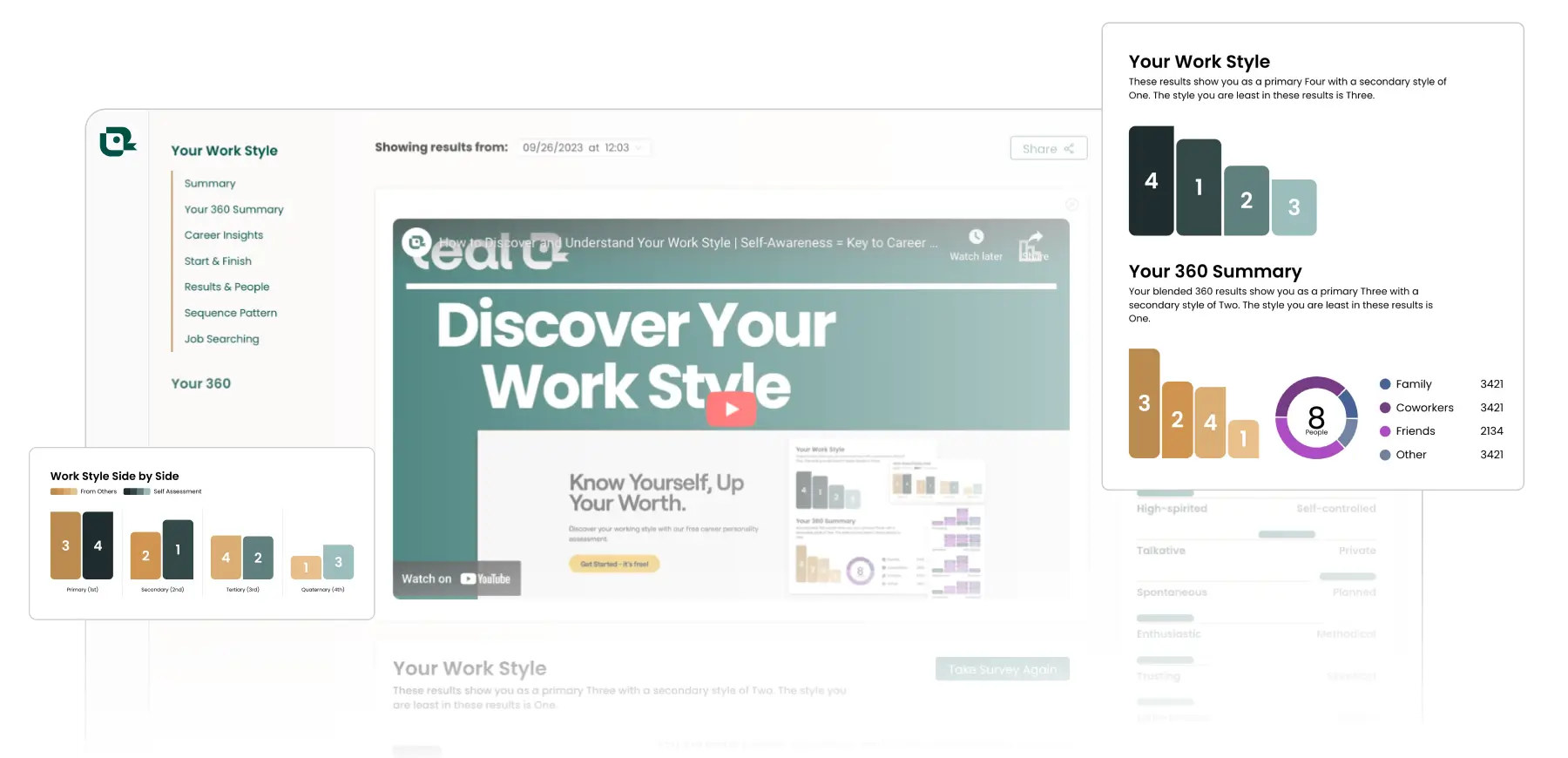

The Career Personality Test is a 2-3 minute self-assessment that delivers personalized career insights on your strengths, weaknesses, and personality traits that align your career path with your values.
Improve your interpersonal skills and learn how others see you in the workplace, by sharing your unique assessment link with your colleagues, managers and peers.

With personalized career insights, you’ll gain clarity into the environments and methods in which you work best. Increase productivity and collaboration in the workplace by learning how you best approach projects, execute tasks, achieve results and interact with others.
Learn how your career personality fits within team dynamics – navigate workplace challenges with ease, and experience a more harmonious work environment.

Take charge of your career development by learning what comes easily to you, what takes effort, and how you show up in the workplace.
Use your personality insights to leverage your strengths, increase confidence, improve work performance, and achieve your goals – so you continue to grow your career.

In today's job market, finding your perfect fit isn't just about qualifications – it's about understanding your unique personality traits, inherent strengths, weaknesses, and the environments in which you thrive.
Gone are the days of staying in a job that doesn’t align with your values – It’s time to choose a career that truly resonates with your authentic self.
Our Career Personality Test delivers personalized career insights on your strengths, weaknesses, and work styles – allowing you to better navigate complex challenges, experience job satisfaction, develop your skills, tailor your job search, and explore career paths that align with your true identity – allowing you to focus on delivering your best work.
Take advantage of Teal’s Career Personality Test to receive personalized insights on your preferred work style, your strengths, and – empowering you to grow your career, on your terms.
Complete the 2-3 minute assessment to receive personalized insights about your career personality.

Receive personalized career insights that uncover your key strengths, weaknesses and preferred work style – Learn which skills come naturally to you, what areas take effort, and the environments in which you thrive.
Utilize your insights to learn how to best leverage your strengths, address your weaknesses, and tailor your job search to find a career that truly aligns with you.

Share your unique assessment link with your colleagues, managers and peers to receive real-time feedback, and gain clarity into how others perceive you.

Incorporate your insights and feedback into your professional development goals, and continue to grow in your career.

The Career Personality Test differs from other personality assessments by focusing specifically on identifying traits and strengths relevant to career success.By tailoring its analysis to career-related attributes, such as work style preferences, communication approaches, and leadership tendencies, the Career Personality Test offers targeted guidance for career planning and development.
It's recommended to retake the Career Personality Test periodically, especially during significant career transitions or life changes. Your results may evolve over time as you gain new experiences and insights into your professional self. Retaking the test can provide valuable updates on your strengths, preferences, areas of growth, and career aspirations, allowing for continued alignment with your evolving professional identity.
Absolutely! The Career Personality Test not only highlights your strengths but also identifies areas for potential growth based on your personality traits. By understanding your unique characteristics, you can pinpoint areas where you may benefit from further development or skill enhancement. This insight allows for targeted professional development efforts, maximizing your potential for success in your chosen career path.



